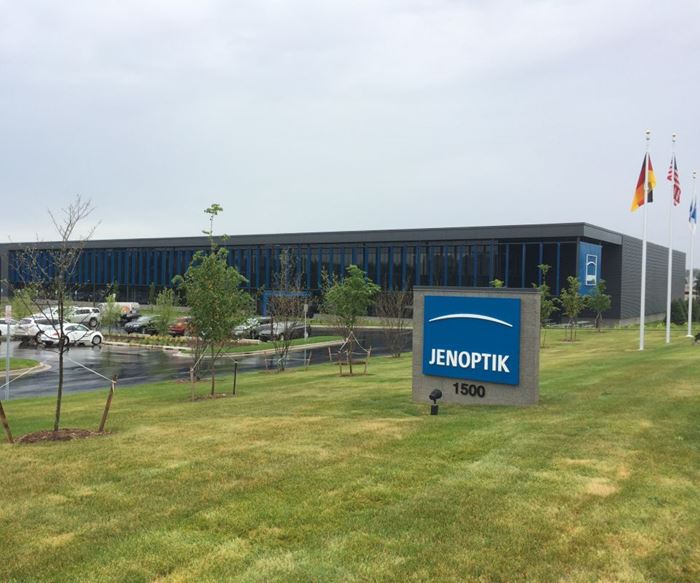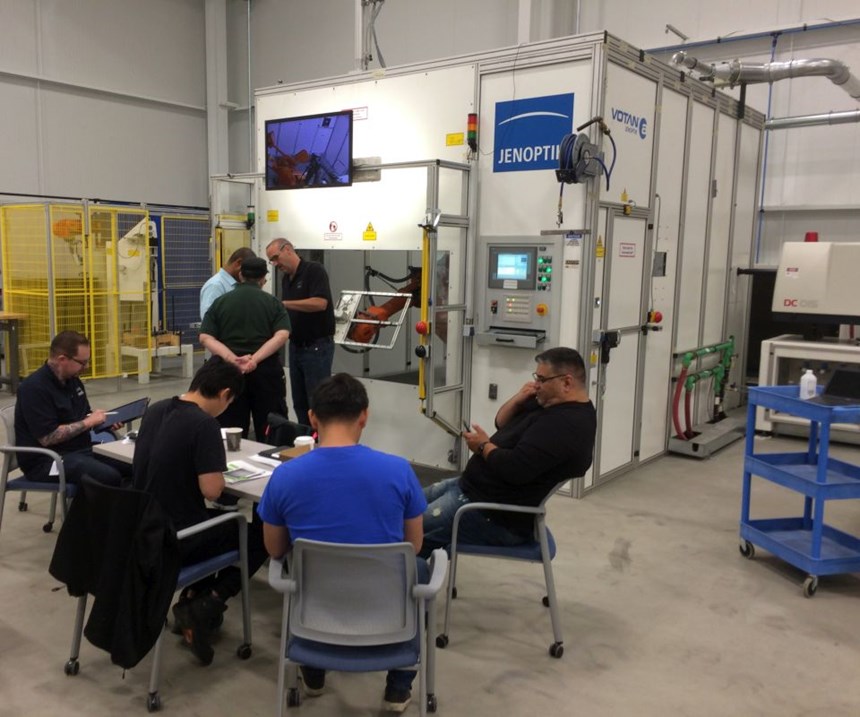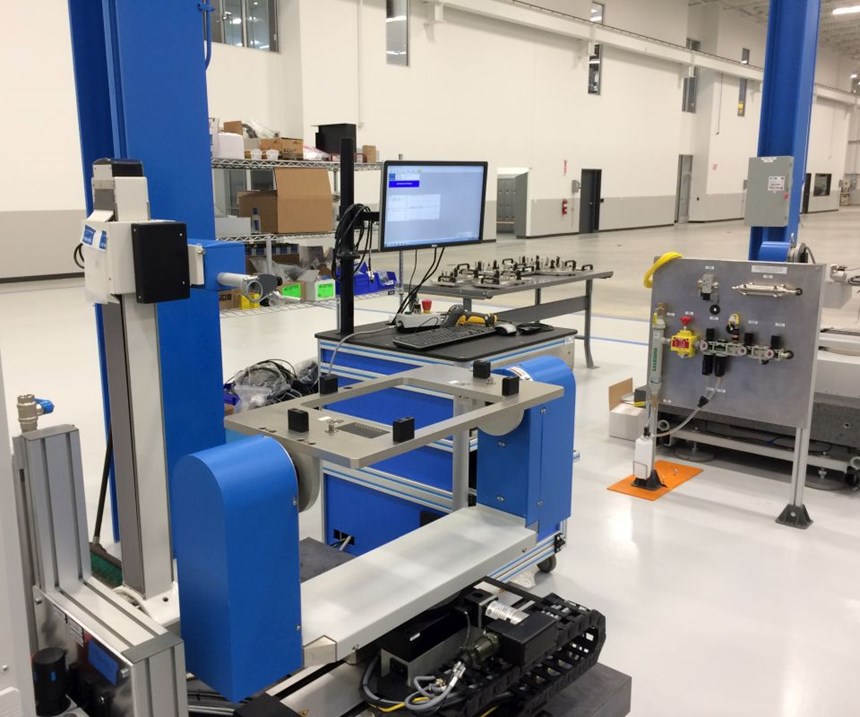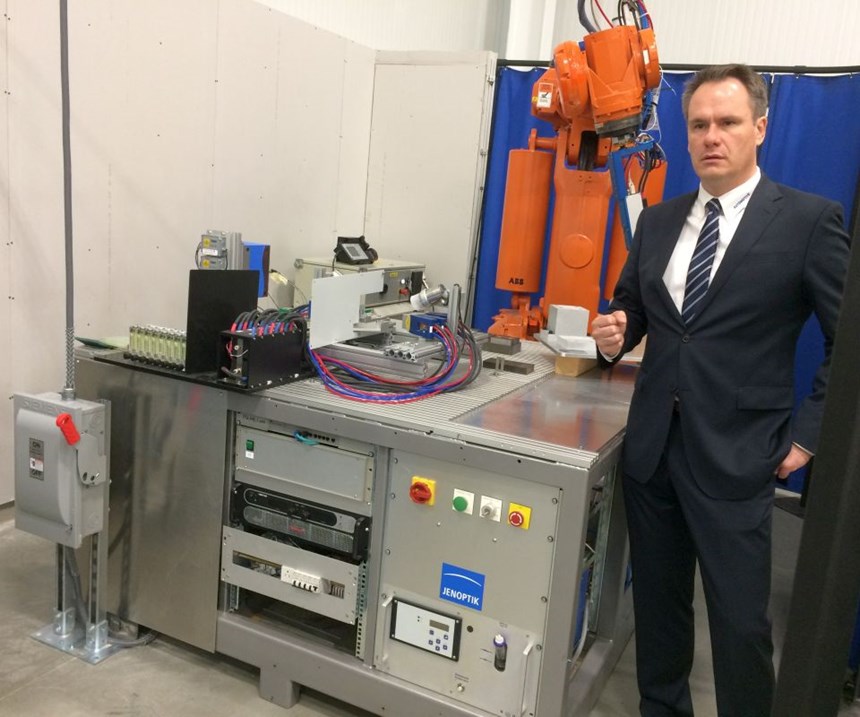Jenoptik Automotive Opens New Michigan Technology Campus
This 100,000-square-foot facility will be devoted to the production and testing of the company’s automated laser-cutting and gaging solutions for the North American automotive industry.
Share





In May, Jenoptik Automotive in Rochester Hills, Michigan, moved across the street from its former U.S. headquarters to a new 100,000-square-foot facility on a 16-acre campus that offers room for expected future expansion to 150,000 square feet. This operation will be devoted to production, testing and customer training for laser cutting systems and automated gaging solutions for North American automotive original equipment manufacturers (OEMs) and Tier suppliers.
The company says North America is one of Jenoptik’s strategic target markets in which it envisions above-average growth in the coming years. In 2016, Jenoptik generated approximately 20 percent of group revenue, or 135 million euros in the Americas. In total, Jenoptik employs about 270 staff in the United States.
Its metrology offerings include precision contact and non-contact production metrology for a wide range of measurement tasks, including the pneumatic, tactile and optical testing of workpiece roughness, contour and form, as well as workpiece dimensional measurement integrated both into the production process and in the metrology lab.
Its 3D-laser-processing systems and machines can be integrated into production lines for processing plastics, metals and leather. In fact, a large portion of the facility will be dedicated to customer testing and training of application-specific, automated laser machining projects. According to Andreas Blind, vice president of sales, services and marketing, “In our expanded laser application center, we will be able to demonstrate and perform feasibility studies, application-specific competencies, as well as cutting and welding services directly on-site.” Common applications include the cutting of plastic bumper facia and scoring of the back of dashboards to ensure proper airbag deployment. Mr. Blind says laser-machining testing capability and capacity are important due to the number of new automotive OEM brands and new materials being used.

























